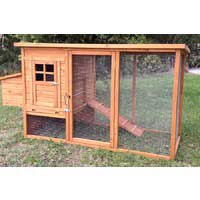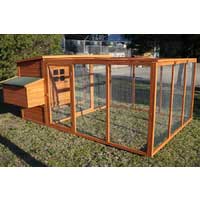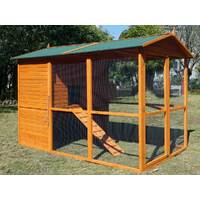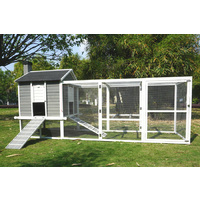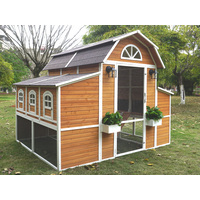Just like any social animal, chickens operate in a hierarchy. The need to create a hierarchy is to attain and keep order. This social structure order in chicken, as well as other aves, is referred to as the pecking order.
What is the pecking order?
Among the many natural processes that are associated with backyard chicken, the pecking order is one of them. It naturally happens in order for the chickens to determine how they will relate to each other. The pecking order is a social dynamic structure that dictates the status of every bird in the flock and the role each one of them will play.
It is an order that affects numerous activities undertaken by every backyard chicken including; egg laying, crowing, dust bathing, mating, roosting, feeding and drinking. This means that it is an important natural process in chickens as it determines their primary activities. Strong flock members are ranked highly on the hierarchy. The physically weak or the more submissive chickens on the other hand rank lower in the order.
Healthy alpha roosters crow to signify dominance to others. They usually lead the flock and protect hens by watching out for predators. Since they are the leaders, they find treats for hens, mate and chase away other roosters from the flock. Hens ranking higher in the hierarchy chase away other hens from their favorite nest boxes.
How to avoid problems
While the pecking order is meant to increase harmony in the flock, it also creates absolute havoc. There is nothing easy about this hierarchy. This is because sometimes, the backyard chickens will have to fight to determine who deserves a certain position. Therefore, there are problems that come with the pecking order and below are some of the ways to avoid the problems.
Ensure adequate personal space
For backyard chicken, there is no ideal method for space requirements. However, it is recommendable to have sufficient space for every bird. Ensure to provide bigger room if your backyard chickens are in the coop 24 hours every day. This is because boredom can cause mischief.
In the case where your chickens are free ranging, the space in the coop isn’t important until winter. When the fall arrives, increase the space to accommodate your chickens comfortably. There are chickens that love space while others do not.
Ensure that you offer numerous roosting spots enough for every hen to get away when need be. Hiding places are important within or outside the coop. The hiding places should be dark and quiet.
New chickens and the pecking order
Are you planning to bring a new backyard chicken in the flock or several of them? You might be exposing it to some serious injuries before it fits in the flock. This is because newly acquired chickens can be attacked by the existing flock as they interfere with the pecking order. To resolve this possible dispute, ensure that you separate your new chicken/s using a large crate or run.
If it is possible, you can set aside a section in your coop for new chickens which can be removed later. Keeping them separate but visible to the existing flock allow the flock to get acquainted with the new ones. This way, they can interact without really getting into contact.
This is all about the pecking order and how you can handle it to avoid injuries and even death for some chickens. For new chickens, you can separate them for a week or two and observe how they interact with the existing flock. To ensure that the pecking order is less stressful for new chickens, provide multiple feeding and drinking areas as well as hiding places.
With the information above, you will now be able to understand why your roosters fight and why only one rooster crows in the morning. This will improve how you relate with the backyard chicken and what you can do to avoid a lot of problems in the coop. All the best!!
Best Sellers
Lastest posts

Backyard Chickens In The Outback
In recent years, raising chicken in the backyard has become more than a fad...
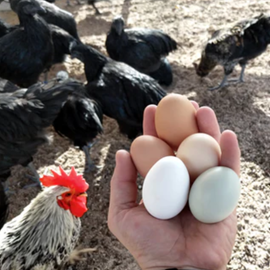
The Best Eggs in Town
10 Breeds of Chicken That Will Lay Lots of Eggs for You. Deciding which chi...
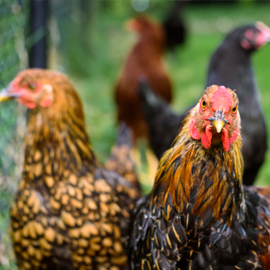
The Beginner Guide To Backyard Chicken
Raising backyard chicken is a trend that is rapidly growing in Australia. K...
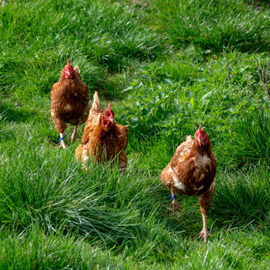
The Backyard Chicken Pecking Order
Chickens are some of the social birds that are domesticated. It, therefore,...




